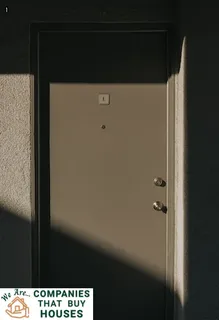Understanding the probate process in Arizona is important for anyone who has recently sold a home or is considering selling a property in the state. Depending on the size and complexity of an estate, settling it can take anywhere from nine months to two years after the sale of a house.
The legal process begins with a petition being filed with the court, followed by submitting notices and forms to interested parties. After that, an executor may be appointed to manage the process, including filing tax returns and gathering all relevant financial documents.
A list of assets must also be created before creditors can be paid and heirs can receive their share of the estate. If any disputes arise during this time, those will need to be resolved before final approval from the court.
It's important for potential buyers to understand these processes in order to plan accordingly before making a purchase.

In Arizona, some assets may require probate while others may not. Generally speaking, any property that is solely titled in the name of the deceased will need to go through a probate process.
This includes real estate, vehicles, boats, and other tangible property. Bank accounts and retirement accounts that are solely in the deceased's name will also require probate.
In some cases, joint accounts can bypass probate if named to an individual survivor or trust fund. Other assets such as life insurance policies, annuities, and pay-on-death accounts can also avoid the probate process if they have a designated beneficiary listed on them at the time of death.
Additionally, certain types of trusts may be used to help minimize or even sidestep the probate process entirely. It is important to keep in mind that every situation is different and it is recommended to check with your local attorney for more information about what assets require probate in Arizona before settling an estate after selling a house.
In Arizona, there are options available to avoid probate when settling an estate after a house is sold. One option is to set up a living trust which allows the transfer of assets without involving the probate court.
This can be done with the help of an estate planning attorney who will assist in setting up the trust and transferring assets into it. Another way to avoid probate is to make sure all your assets have named beneficiaries, such as retirement accounts and life insurance policies.
If you own real estate jointly with someone else, that property can pass directly to them without going through probate. Lastly, some smaller estates may qualify for Arizona's simplified procedure for estates under $75,000 which does not require a formal probate proceeding.
Each of these options has its benefits and drawbacks so it is important that you speak with a qualified attorney to determine what works best for your circumstances.

In Arizona, validating a will is done through the probate process. This process requires all parties involved to file documents in court and requires different steps depending on the size of the estate and the type of assets held by the deceased.
Generally, the executor needs to obtain a copy of the will from either an attorney or from county records. They then need to file a petition for probate in court along with any other necessary documents.
After that, they must serve a notice to creditors and beneficiaries informing them of their rights, as well as answer any questions related to the estate’s assets and liabilities. If there are no objections from creditors or beneficiaries, then the executor can begin distributing assets according to the terms of the will.
This process can take up to several months or even years if there are challenges or disputes involved. It is important for anyone who is tasked with validating a will in Arizona to understand their rights and responsibilities throughout this process so that they can ensure that final settlement occurs quickly and correctly.
Probate is not always necessary when settling an estate after a house is sold in Arizona real estate. In some cases, the process can be simplified and expedited with the help of legal professionals who are familiar with the laws of the state.
The most common example of this is when a home is owned by just one person. In such cases, the executor or administrator of an estate has a much easier time transferring title from one person to another without going through probate proceedings.
Furthermore, if a home is owned jointly by multiple people, such as spouses, then in many cases the surviving owner can transfer ownership without going through probate court as long as all parties agree and sign off on the transaction. There are also other instances where probate may not be required for transferring property rights in Arizona real estate transactions, such as when small estates are involved or when all heirs agree to waive their right to formal probate proceedings.

A simplified probate procedure in Arizona can speed up the process of settling an estate after a house is sold. To begin, an executor should make sure to properly identify and collect all assets owned by the deceased.
This includes real estate, personal property, bank accounts, and any other items of value. Once these assets are gathered, they must be appraised and all taxes paid on them.
Next, creditors must be notified and allowed to make claims against the estate. After all debts have been settled and approved by the court, the remaining funds from the sale of the house can then be distributed among heirs according to state law.
In order to ensure a smooth probate process in Arizona, it’s important for an executor to familiarize themselves with local laws regarding inheritance and estate taxes as well as filing deadlines for various documents that may be required. Taking shortcuts such as hiring professional help or using online forms can also help streamline this process so that an estate can settle more quickly after a house is sold.
When settling an estate in Arizona after a house is sold, the executor has considerable powers during the probate process. This person is appointed by the decedent's will or by the court if there is no will.
The powers of the executor include collecting assets, managing them, paying creditors and taxes, and distributing remaining assets to heirs and beneficiaries as directed by the will. It is also their responsibility to resolve any disputes that may arise in regards to claims against the estate.
They must also publish notices of probate proceedings so potential creditors can submit claims against the estate. During this process, they are required to keep accurate records of all activities related to settling the estate and must provide regular accountings to all interested parties.
Executors are commonly held liable for any financial mistakes they make while carrying out their duties, so it pays to have a qualified attorney oversee this important task.

When a house is sold in Arizona, the real estate process can be complex and time consuming. It is important to understand the different types of probates that may be required and their associated requirements.
An intestate probate is necessary when a decedent dies without a will or other estate planning documents in place. This type of probate requires court approval and typically takes between 6-9 months to complete.
Testate probates, on the other hand, are used when an individual has created an estate plan prior to their death. These probates usually take less time than intestate ones as the wishes of the decedent are already established and agreed upon by all parties involved.
In addition, small estate affidavits can be used to expedite the process if certain conditions are met such as no disputes among heirs or creditors, assets valued at less than $100,000, and no real property held in the decedent’s name. Lastly, spousal property petitions allow surviving spouses in Arizona to transfer assets from their deceased spouse’s name into their own name which often speeds up the sale process with minimal court involvement.
Understanding these types of probates and their specific requirements will help ensure that settling an estate after a house is sold in Arizona goes as smoothly as possible.
In Arizona, dealing with real estate assets after death can be a complicated process. When a house is sold, the settlement of an estate must be handled carefully to ensure that all legal requirements are met and that rights of the deceased's beneficiaries are protected.
It's important for those involved in the transaction to understand the rules surrounding real estate sales after death, including who has the authority to make decisions and what documents must be submitted. The length of time it takes to settle an estate after a house is sold depends on several factors such as how long it takes to identify and locate all of the heirs or beneficiaries, submitting relevant paperwork to probate court and settling any debt owed by the deceased.
Additionally, real estate agents may need to be involved in helping coordinate certain aspects of the sale. Understanding these steps ahead of time can help speed up the process and ensure that everything is done properly.

Executors of an estate in Arizona must be aware of the tax obligations that come after probate is complete. The executor will need to file a final income tax return for the decedent and any fiduciary returns for the estate.
They may also be required to pay taxes on distributions made from the estate to beneficiaries, such as capital gains or other income taxes. It is important for executors to account for all revenue generated by the estate, including rent payments or sale proceeds from real estate, in order to accurately calculate their tax liabilities.
In addition, they should ensure that any outstanding debts are settled and that all applicable fees have been paid before they distribute assets among beneficiaries. With proper planning and organization, an executor can efficiently manage the estate's financial responsibilities and ensure that all relevant taxes are paid.
Settling an estate after the sale of a home in Arizona can be a costly endeavor, but there are steps that you can take to minimize expenses associated with the estate administration process.
One way to reduce administrative costs is to use an experienced real estate professional who can help ensure all paperwork is completed correctly and efficiently.
Additionally, it's important to be aware of any tax implications that may arise from selling a property in Arizona, as this can affect the amount of money owed and the length of time it takes to settle the estate.
Finally, being proactive about staying organized and communicating regularly with all parties involved throughout the entire process can greatly reduce delays which will ultimately save money on legal fees and other costs associated with settling an Arizona real estate estate.
Settling an estate in Arizona can take anywhere from one to three months, depending on the complexity of the situation. When a house is sold, it's important for the heirs to understand that there are certain steps that must be taken in order to ensure that everything is done correctly.
First, a legal representative must be appointed to oversee all of the estate-related activities and paperwork. Once this has been determined, they will need to make sure that all debts have been paid before any money can be distributed among the heirs.
In addition, they will also need to assess any taxes owed and make sure these are paid before the estate is settled. Finally, the executor will need to make sure that all necessary documents have been filed with the court and records have been updated accordingly.
Depending on how quickly these steps can be completed, an estate can usually be settled within one to three months after a house is sold in Arizona.

In Arizona, an executor of an estate is responsible for settling the estate and distributing assets to heirs. The length of time it can take to settle a real estate estate varies depending on the circumstances, but typically takes between six months and two years.
During this time, the executor must complete a number of tasks including identifying assets, paying debts and taxes, gathering property documents, locating beneficiaries, appraising assets and filing court papers. In some cases, probate may be required which can add additional time to the process.
After all tasks are completed and all funds have been distributed to the heirs as designated by the will or state law, the executor can then close out the estate. It's important to note that in order for an executor to receive compensation for their services they must receive court approval before distributing any funds or closing out the estate.
Settling an estate in Arizona is a complex process that requires a detailed understanding of the real estate laws and regulations. When a house is sold, the estate must be settled before the transaction can be finalized.
The length of time it takes to settle an estate will vary depending on the size of the property, how many heirs are involved, and other variables. The executor or administrator of the estate must gather all necessary documents, such as titles, deeds, and mortgages; notify any creditors; distribute assets according to state law; and pay any outstanding debts or taxes.
It is important to understand that there may be delays along the way due to court proceedings or other complications. Additionally, certain types of estates may require special procedures that add to the timeline.
While there are no specific rules regarding how long it takes to settle an Arizona estate, most transactions can be completed within 60-90 days. Working with an experienced real estate lawyer can help ensure that everything is handled properly and efficiently.
Most estates in Arizona take anywhere from 3-6 months to settle after the house is sold. This timeline can vary depending on the complexity of the estate and whether there are any disputes involved.
During this time, a court appointed representative will manage the estate and handle paperwork related to the sale of the home. It is important for all parties involved to understand that settling an estate takes time, and it is not something that can be rushed through or completed overnight.
In addition, if there are multiple heirs involved, they may need to sign off on various documents which can further delay the settlement process. Ultimately, once all paperwork has been submitted and approved, the court will issue an official decree that settles the estate and allows for distribution of funds amongst heirs.